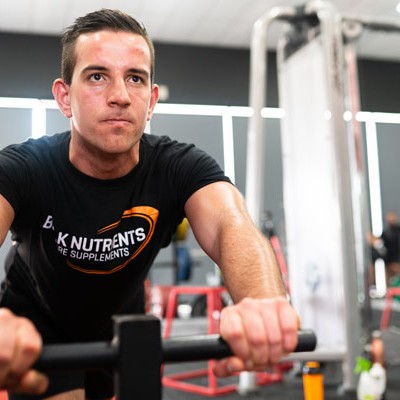Coffee Helps People Live Longer?

Coffee for a longer life span?
Firstly, this study is an observational one, meaning it didn’t study cause and effect.
This means scientists look at the data of many, see how long they live, analyse what they report they’ve eaten, and draw conclusions.
And sometimes it’s accurate, and other times it’s totally wrong.
But observational research is still good for generating a hypothesis – which is all we can draw from this study at this point.
The study analysed data from more than 171,000 participants of the UK BioBank, which has collected genetic, lifestyle, and health information from more than half a million people since it began in 2006.
And they found that people who drink coffee – with or without sugar – appear to have a lower risk of early death compared to non-drinkers. This also includes instant, ground, and decaffeinated coffee.
The Chinese researchers used data from death certificates to track the participants for a median period of seven years from 2009, during which 3,177 people died.
And a 29% lower risk of death was the largest reduction – seen for those drinking between 2.5 and 4.5 cups a day.
Reductions in the risk of death were also seen for coffee sweetened with sugar, at least for those drinking between 1.5 and 3.5 cups a day.
But the researchers reported the trend was less clear for people who used artificial sweeteners.
I must point out that the research questioned participants about coffee drinking and other habits only once and relied on self-reporting (as these studies often do). So, a lot of people are sceptical but observational findings still warrant further research as mentioned.
Coffee has been linked to better health in other observational research, including:
- Improvements in some Cardiovascular risk factors, including type 2 diabetes, depression, and obesity.
- Appears to protect against some neurodegenerative diseases, and is associated with improved asthma control, and lower risks for liver disease and cancer.
And this review found that three-to-four cups a day was better than none for reducing the risk of all causes of mortality, cardiovascular mortality, and cardiovascular disease.
Coffee was also found to be associated with an 18% lower risk of incident cancer, and a lower risk of several specific cancers and neurological, metabolic, and liver conditions.
And when the researchers adjusted the data for smokers, the harmful associations were “largely nullified.”

Coffee could be the same as red wine – ZERO might be better?
This is unlikely but for argument’s sake, I’ll tell you what I mean. You would’ve heard the myth that persisted for years that “a little bit of red wine is good for your heart.”
This was accepted for so long until (another) study analysing BioBank data, looked at the connection between genes linked to alcohol intake and heart issues, and found drinking ANY amount of red wine was associated with an increased risk of disease.
The senior author said the narrative might have been the wrong way around from the start: the low intake of alcohol from certain populations is associated with a better diet and exercise, and THIS is the reason there’s been lower risk of cardiovascular issues.
In other words, we've thought red wine was the reason people were having fewer heart health issues. But really, those drinking a very moderate amount of alcohol are actually much healthier all round – exercising regularly and eating better.
And when the researchers adjusted the data to remove these healthy lifestyle factors — the heart health benefits of being in the light and moderate categories disappeared.

They found any alcohol consumption was then associated with a greater risk of cardiovascular disease.
And this included red wine and alcohol in general.
Moreover, another study looked at the risk factors for death and disability from alcohol from 694 data sources from around the world, stretching from 1990 to 2016. And one of its conclusions?
“The level of alcohol consumption that minimised harm across health outcomes was zero standard drinks per week.”
Now I’m not saying this will be the case with coffee – alcohol is a carcinogen. But it’s an example of how observational research can be totally wrong, and it just so happened to come from the same data pool!
Let’s get this straight: there are NO reasons to stop using caffeine found in coffee before workouts. So, keep doing that!
The bottom line on coffee and living longer
Coffee may help us live longer. This new study found coffee with or without sugar may induce a lower risk of early death – a 29% lower risk of death was the largest reduction for between 2.5 and 4.5 cups a day. Reductions in the risk of death were also seen for coffee sweetened with sugar, at least for those drinking between 1.5 and 3.5 cups a day.
It may be that coffee drinkers are healthier, and live healthier lives and therefore likely to live longer. But more research is needed before we know either way. Keep consuming coffee before your workouts for the performance benefits.

Dayne Hudson
Like many, Dayne was once desperate to lose weight and get into shape. But everyone he asked, everything he read, lead to the same place... nowhere.
His journey started there - researching science journals and completing a Sports Nutrition Specialist qualification so he could make weight loss easier.
References:
- Biddinger KJ, Emdin CA, Haas ME, Wang M, Hindy G, Ellinor PT, Kathiresan S, Khera AV, Aragam KG. Association of Habitual Alcohol Intake With Risk of Cardiovascular Disease. JAMA Netw Open. 2022 Mar 1;5(3):e223849. doi: 10.1001/jamanetworkopen.2022.3849. Erratum in: JAMA Netw Open. 2022 Apr 1;5(4):e2212024. PMID: 35333364; PMCID: PMC8956974.
- GBD 2016 Alcohol Collaborators. Alcohol use and burden for 195 countries and territories, 1990-2016: a systematic analysis for the Global Burden of Disease Study 2016. Lancet. 2018 Sep 22;392(10152):1015-1035. doi: 10.1016/S0140-6736(18)31310-2. Epub 2018 Aug 23. Erratum in: Lancet. 2018 Sep 29;392(10153):1116. Erratum in: Lancet. 2019 Jun 22;393(10190):e44. PMID: 30146330; PMCID: PMC6148333.
- Liu D, Li ZH, Shen D, Zhang PD, Song WQ, Zhang WT, Huang QM, Chen PL, Zhang XR, Mao C. Association of Sugar-Sweetened, Artificially Sweetened, and Unsweetened Coffee Consumption With All-Cause and Cause-Specific Mortality : A Large Prospective Cohort Study. Ann Intern Med. 2022 May 31. doi: 10.7326/M21-2977. Epub ahead of print. PMID: 35635846.
- O'Keefe JH, DiNicolantonio JJ, Lavie CJ. Coffee for Cardioprotection and Longevity. Prog Cardiovasc Dis. 2018 May-Jun;61(1):38-42. doi: 10.1016/j.pcad.2018.02.002. Epub 2018 Feb 21. PMID: 29474816.
- Pflaum T, Hausler T, Baumung C, Ackermann S, Kuballa T, Rehm J, Lachenmeier DW. Carcinogenic compounds in alcoholic beverages: an update. Arch Toxicol. 2016 Oct;90(10):2349-67. doi: 10.1007/s00204-016-1770-3. Epub 2016 Jun 29. PMID: 27353523.
- Poole R, Kennedy OJ, Roderick P, Fallowfield JA, Hayes PC, Parkes J. Coffee consumption and health: umbrella review of meta-analyses of multiple health outcomes [published correction appears in BMJ. 2018 Jan 12;360:k194]. BMJ. 2017;359:j5024. Published 2017 Nov 22. doi:10.1136/bmj.j5024
Related Blogs

Lifting Weights Makes You Live Longer
Posted by Dayne Hudson
Estimated reading time: 5 minutes

Is Red Wine Actually Good for Your Heart?
Posted by Dayne Hudson
Estimated reading time: 6 minutes

Factors That Affect Men’s Health and Turning Your Health Around
Posted by Ben Disseldorp
Estimated reading time: 10 minutes




























